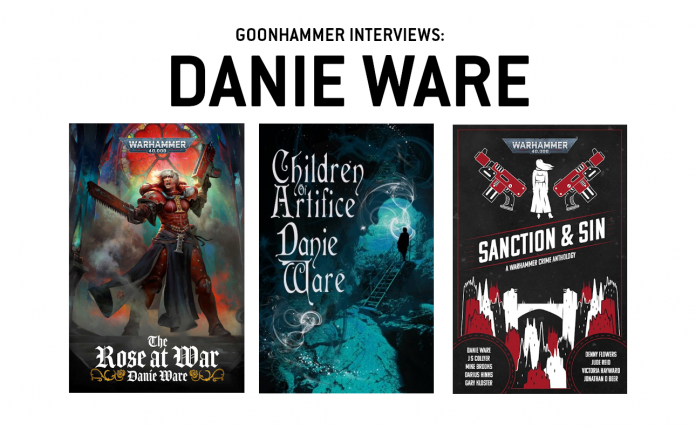Aaron “Lenoon” Bowen was lucky enough to sit down and chat to author, reenactor, Sisters of Battle Canoness and totally excellent human Danie Ware for an interview on writing for the Black Library, Sisters and representation in the hobby.
Aaron: Hi Danie! Would you mind doing an intro for yourself so I don’t absolutely mangle it?
Danie: I’m Danie, single parent, lifelong geek and gamer. I started playing AD&D in the late 80s, when I was still at Uni (and have played many, many other RPGs, inclusing a LOT of Cyberpunk and World of Darkness), was a Dark Age re-enactor for more than a decade, then, after moving to London from Norwich, handled front-line PR, social media, and event management for the Forbidden Planet (London) chain for seventeen years. These days you can find me in the Manga and GN section at Waterstones in Piccadilly.

Aaron: How did you start off with the Black Library?
Danie: Completely by accident! I had an email asking for a pitch, didn’t read it properly, got terribly carried away, and wrote the original Sister Augusta story, ‘Mercy’. I then had a slightly confused contact back from the editor, but the story seemed to be the right thing, at the right moment, and it all rolled forwards from there.
Aaron: Were/Are you into the hobby as well, and if so what do you play/paint/collect?
Danie: Years ago, we used to have a huge war/gaming table in the (infamous in its heyday) garage, and I had an orc and goblin fantasy army that got into all sorts of scrapes, including participating in one seven-way uber-battle that turned into a bit of a legend. (As a random aside, my orcs’ marching song turns up in my story ‘Da Big Mouf’). I still play orks, though (sadly) have much less opportunity these days – my son and I do have a (much smaller) war/gaming table, and I usually face his Mechanicus. As for painting, well I <can>, but I have the fine motor control of a three-toed sloth in mittens, so it’s not something I tend to shout about, or share on the socials!
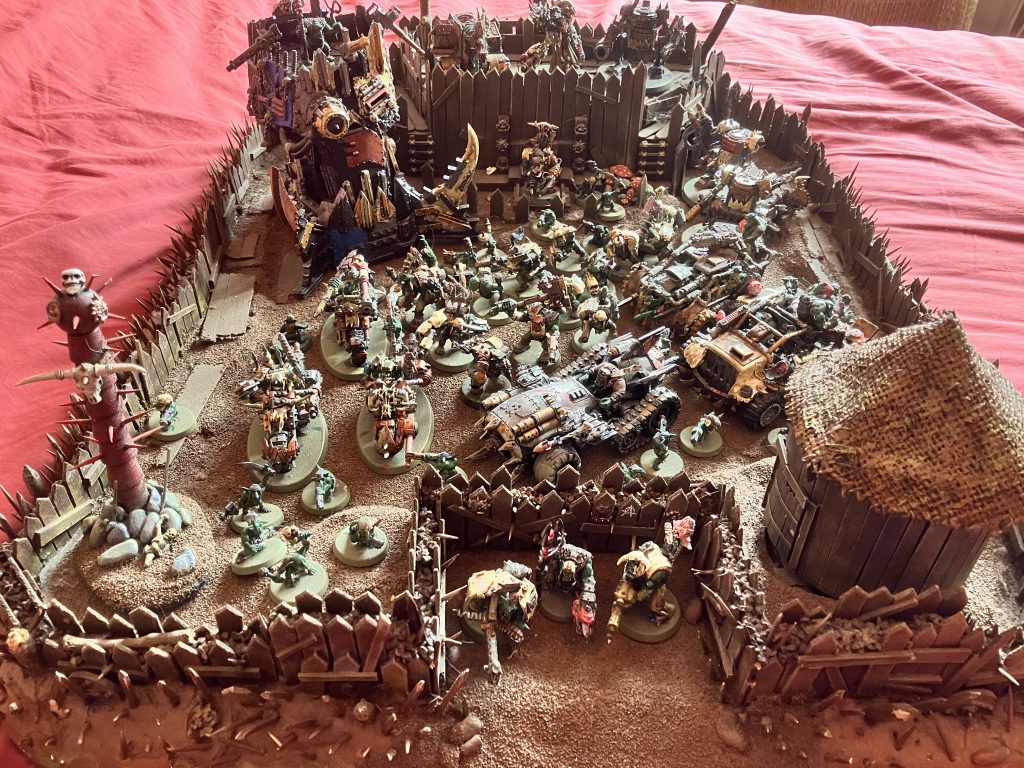
Aaron: You’re really known for your Sisters, particularly in Rose at War – out in paperback soon! – which I think you have a really great take on. How did you end up writing about the Sisters?
Danie: Thank you, they’re fun to write! Going back to the previous question, when the original email arrived, it was open-ended – because it was just a pitch, eedgit – and I really wanted to write Sisters of Battle. There was very little Sisters fiction around at the time, only Jim Swallow’s original Faith & Fire and Hammer & Anvil, and Alec Worley’s shorts, all of which I loved, so they were a great way to get a toehold on a vast mythology, and to not get too overwhelmed. I borrowed the old/original Codex from a friend, chose Bloody Rose purely because everything else was Martyred Lady and I wanted to do something different. And I chose to write a veteran, an older Sister Superior who had experience and reputation, a mean edge and a touch of protectiveness, and who could hold her own against the biggest of the Imperium’s foes. This might have been purely because of my own age, you understand – it’s not just the young women who can kick butt!
Aaron: How did you approach the Sisters and their mindset?
Danie: I had the fortune to go to a very good school, where I was a member of the CCF (Combined Cadet Force) for five years, and was the first girl to reach the rank of Sergeant, plus I was in the TA while at Uni. I also sung in the school’s Choral Society – alto, performing Mozart, Verdi, Faure, all the good stuff – including a full-on performance of Verdi’s Reqiuem in the Albert Hall. And there are no words to describe what being a part of massive, classic choir is really like, it makes your hair stand on end. I think, if you cross these two things over, you can see how the Sisters of Battle fit in the middle.
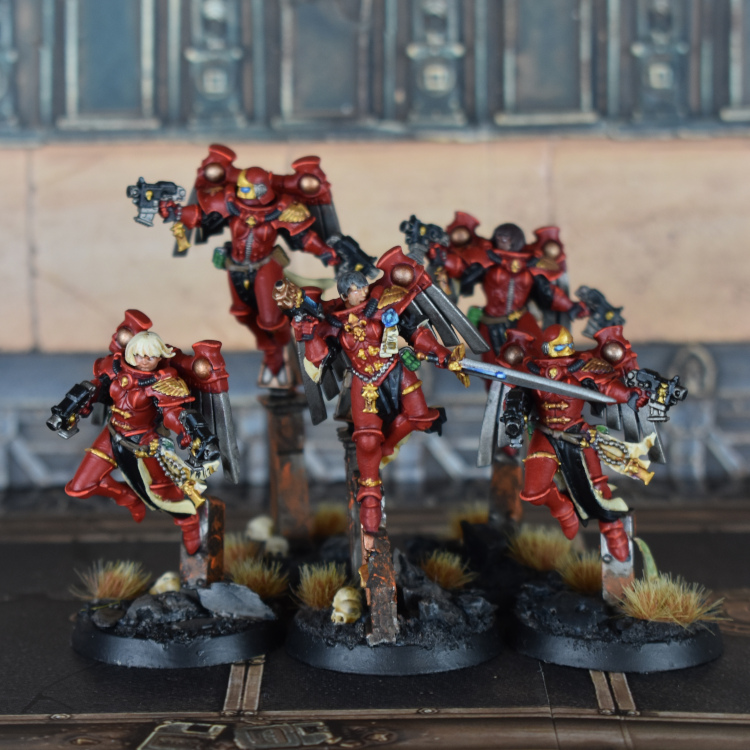
To me, they’re soldiers. Religious, yes, zealous, absolutely, as pious as they come, utterly loyal and devoted to the God-Emperor – but they’re also military professionals, they bloody-well get the job done, and their faith is a critical part of that. I guess I draw on personal experience, not of faith precisely, but of the sheer rush of choral music, and of basic, military and firearms training. And, going back to the re-enactment, of the fast, react-by-instinct roughness of bring in mêlée combat.
Most importantly, though, my Sisters are human. They make mistakes, they get overwhelmed, they suffer, and they feel pain and grief. To me, you can’t have courage, unless you face fear, you can’t have honour, or faith, unless you face your own weakness, or darkness – one half cannot exist without the other. This theme features very strongly in ‘The Triumph of Saint Katherine, and it might just be the most critical thing of all.
Aaron: You’ve also written for Warhammer Crime – is it a challenge to write genre within genre like that?
Danie: Have to confess, I did struggle a bit with writing Warhammer Crime, though I really enjoyed (finally!) getting to grips with my Sanction and Sin story, ‘Bracelet of Bones’. Absolutely love the setting and all of its background and visuals, but I do tend more towards adventure stories, and stories with human flaws (and probably too much scrapping), and the slightly more intricate (and quite specific) needs of the Crime genre did throw me somewhat. Having said that, though, I would love to get back to the decaying grandeur of Varagantua and explore it more fully!
Aaron: Outside the Black Library – what works are you most proud of (so far!)?
Danie: My ECKO series is my opus, out from Titan Books. It’s a classic fantasy trilogy with a twist, taking a foul-mouthed Cyberpunk assassin and dropping him into the fantasy world, telling him he’s the Chosen One – and Ecko, sarcastic by nature, is having absolutely none of this. Believing he’s plugged into some sort of mental healing/re-adjustment program, he promptly tells the fantasy world to shove its Prophecy where the sun don’t shine and goes off to cause Trouble.
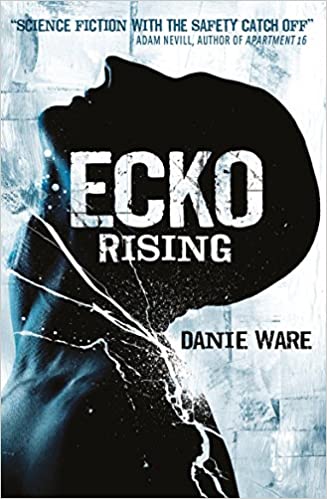
The story takes the mick out of some classic fantasy tropes, but it also deals with culture shock, with the grey bleakness of depression and the passion that’s its opposite, and with finding friends no matter how much you don’t think you can. Plus it’s still got some good ol’ fashioned fantasy elements – a map, some big battles, some proper heroes, and a certain amount of traditional beastie-walloping. And it all builds up to an epic conclusion!
Aaron: Can you tell us about Children of Artifice? It’s on my way to my Kindle as I write! [edit: I’ve now read it and it’s great!]
Danie: Children of Artifice is a queer love story, set against the vivid and ancient backdrop of a huge caldera city. It’s an urban fantasy, about political change and unwise metallurgical magicks. It’s a story about family and identity, about what they mean, and about the expectations that they lay upon you. More than anything, it’s a fairy tale, about two lost people finding each other – and about how they fall in love.
It’s a deeply personal book, quite unlike anything else I’ve ever written. This is partially because the central characters/relationships have been with me for a very long time (wrote the original short story in the early 90s), meaning that they’re quite subtle and complex, and hence very real. And partially because it was the book I was writing over my Mother’s illness and death, and I guess that was where it all went.
ECKO was a bigger achievement and project, based (with much, much love) on all those wonderful old D&D sessions and the (sometimes crazy) world-building that went with them, but Artifice was – and remains – very close to my heart.
Aaron: I know you’ve talked about being a woman in the ‘no girls allowed’ days of wargaming and nerddom (if it’s possible to say we’re out of that), and I’d be really interested in getting your perspective on that, if that’s alright! Do you get assigned or asked to do female-driven stories?
Danie: Yes, I do tend to get asked to write female-driven stories, though not all the time and I’m quite happy to write whatever. Having said that, I’m also always happy to fly the flag of strong female leads, of Ladies Wot Game, and of women in geekdom in general, be they in re-enactment and LARP, hobbying, SF, comics… the list goes ever on.
Aaron: There are loads more strong female leads these days (hurrah!) Do you think representation on the page and the tabletop is getting better?
Danie: It’s certainly come a very long way from when I started in the 80s – and not only for women, but for the profile of geek culture in its entirety. I remember the days when role-players and gamers were firmly in the closest, keeping our hobbies and passions very quiet!
I’ve been very fortunate, as all of the gaming groups I’ve ever been in have had multiple female players – right from those very early days of playing AD&D. I do have female friends, though, who’ve been on the wrong end of unpleasantness – having the boys gang up on them and kill their characters and other, similar foolishness (and my mother was deeply unimpressed by my hobbies, up to and including just reading SFF, which was a whole, quite nasty, stress of its own).
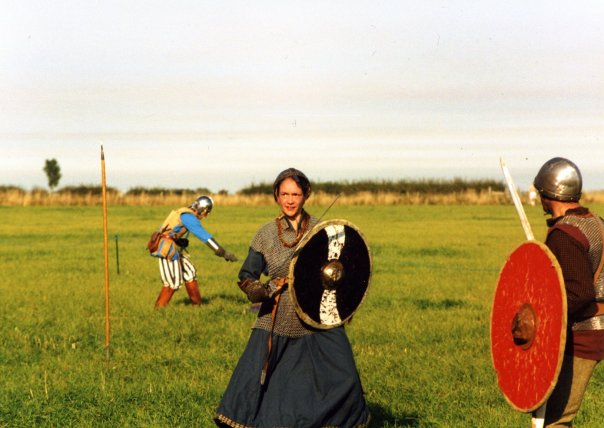
Working for FP for as long as I did, though, I was in the best place to not only ride, but champion, the ascent of geek culture in the UK, and the involvement of women in that ascent – female writers, readers, artists, creators, gamers, collectors, hobbyists, fans – and to watch (and help) social media give women a strong and unified voice. For example: there’s nothing <wrong> with having a female character in a bikini, or having a sexual female character, if that’s what the story requires – but please, not all of them. Not every. Single. Bloody. One. And if they are sexual (same goes for the men!), then it should be for a reason, and that character should still have three dimensions. She’s not just there to be rescued, or to be the narrative equivalent of a blow-up doll.
Aaron: Thats a good point that it’s really on all of us to be doing this – what could we be doing, as gamers, to be better and do more?
Danie: Better representation is happening, and has been for several years. There are a lot of female gamers and hobbyists, and a lot more women writing for the Black Library, which is fantastic. There are more leading female characters – like Justin Hill’s Sergeant Minka Lesk, who got her own mini to coincide with International Women’s Day, and Rachel Harrison’s Commissar Severina Raine. And Augusta herself, of course! Was particularly pleased, when the new Sisters of Battle rules were released, to see the Repentia undergo a significant change in look/artwork – losing the bikinis (see above) and becoming so utterly brutal, so scarred, so honourable, and so doomed. It’s a lot easier to believe in their narrative, now they’re presented more seriously.
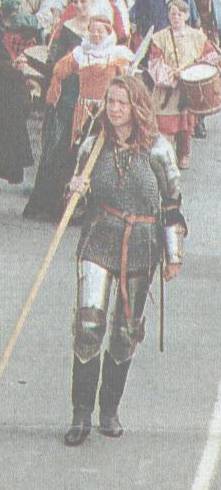
Women in the hobby are just like you, and we want to be treated the same. We want to stop being sidelined, or expected to exist to just titillate the men, or to give them something to save. We want decent representation, and a chance to play on an even playing field (or table). We want characters that reflect ourselves, young and old and everything in between. And it doesn’t stop there, obviously – the same goes for gamers of colour, and for LGBT gamers. And that’s all happening too, which is amazing.
Aaron: Totally agreed there! Thanks very much for talking to us today Danie – much appreciated and looking forward to reading more of your work inside and outside of the Black Library in the future.
We’d like to extend a massive thanks to Danie for talking to us! You can find Danie on Twitter and her books inside the 40k universe via the Black Library and outside on Amazon
Have any questions or comments? Drop us a note in the comments below or email us at contact@goonhammer.com.
